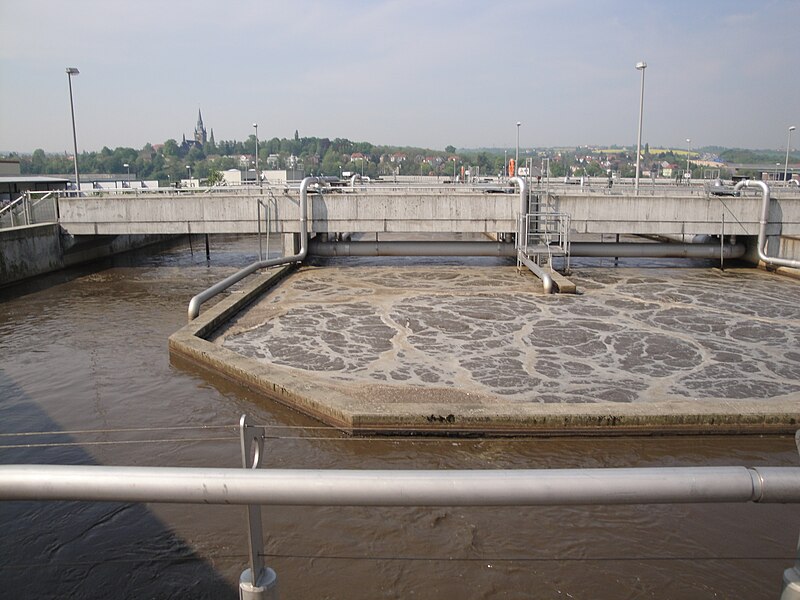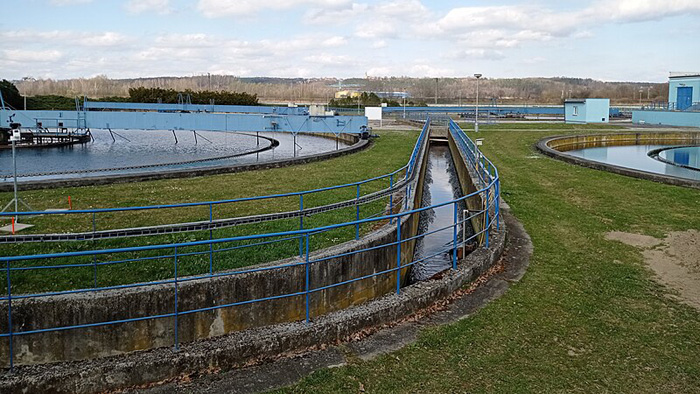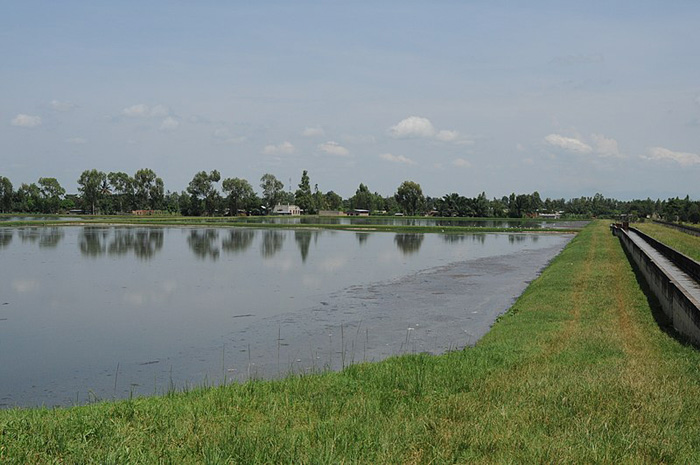
Treating and reusing wastewater are cornerstones of sustainable water management. Wastewater treatment and recycling are of utmost importance in maintaining a consistent supply of potable water and safeguarding the environment in light of the increasing demand for water worldwide. This is the result of climate change, industrialization, and population growth.
Benefits of wastewater treatment and recycling
Numerous advantages, including improved economic efficiency, public health, and environmental sustainability, result from wastewater treatment and recycling programs. Some important benefits include the following:
- Environmental Restoration
- Ecosystem Balance
By keeping water bodies healthy and clean, proper wastewater treatment and recycling contribute to ecosystem balance.
- Restoration of Habitats
Projects to create or restore wetlands, which are vital habitats for wildlife, can receive support from treated wastewater.
- Public health advantages
- Clean Recreational Areas
Wastewater must be treated before it enters recreational waters to keep it safe for boating, swimming, and other activities.
- Safe Irrigation
To reduce the risk of pollution and ensure food safety, crops can be irrigated with recycled water that meets safety standards.
- Prevention of Diseases
To safeguard the public’s health, efficient wastewater treatment and recycling eliminate microorganisms that can cause water-borne diseases.
- Social Advantages
- Community Development
Easy access to safe drinking water and sanitation positively impacts poverty reduction, education support, quality of life, and economic development.
- Resource Sustainability
Water resources are essential for future generations’ survival, and their sustainability depends on effective wastewater treatment and recycling.
- Economic Advantages
- Industrial Reuse
By utilizing treated wastewater instead of fresh water, industrial processes can benefit from reduced production costs.
- Producing Energy
Anaerobic digestion and other wastewater treatment and recycling methods can generate biogas, a renewable energy source that can help cut down on our dependence on fossil fuels.
- Cost Savings
Recycling wastewater may reduce the expenses associated with sourcing, treating, and distributing potable water. It can also reduce healthcare costs due to pollution-related diseases, as well as the cost of cleaning up the environment.

- Infrastructure and technological advantages
- Innovation and the creation of new jobs
Engineers, builders, and maintenance workers all find work in the wastewater treatment and recycling sector, which is also a major employer in the area.
- Improved Infrastructure
Better water management overall allows for more adaptable urban planning. This is why wastewater treatment infrastructure is a priority for investment.
- Environmental Advantages
- Nutrient Recovery
Wastewater can yield phosphorous and nitrogen for reuse as fertilizers, reducing the need for synthetic fertilizers.
- Recharging Groundwater
Recharging aquifers with treated wastewater helps keep groundwater levels stable, stops land from sinking, and keeps saltwater out.
- Conserving Water
Thanks to wastewater treatment and recycling, the reduced demand for freshwater sources means more water for other purposes, such as agriculture and drinking water.
- Reducing Pollution
Wastewater treatment gets rid of harmful pathogens, chemicals, and contaminants before they can enter untreated water sources. By doing so, we can preserve biodiversity and safeguard aquatic ecosystems.
Private companies and the government involvement in wastewater treatment and recycling.
Public health, environmental protection, and sustainable water management all depend on private enterprises and governments’ involvement in wastewater treatment and recycling. Both sectors facilitate the development, operation, and enhancement of wastewater treatment and recycling systems. Below, we summarize their contributions and roles.
Government Participation
- Research and development
- Support for Innovation
Government-funded research programs focus on new and improved wastewater treatment technologies. This funding can come from various sources, including private-sector partnerships, grants, and public research institutions.
- Management and operations
- Infrastructure Development
Governments undertake infrastructure projects to fund the construction and improvement of wastewater treatment plants, pipelines, and recycled water distribution systems.
- Public Utilities
Public utilities are often the means by which various governments manage wastewater treatment and recycling plants. These entities are responsible for the day-to-day running of treatment plants and adherence to rules.
- Funding and investing
- Incentives
Financial incentives such as low-interest loans and tax exemptions could encourage private investment in wastewater treatment and recycling technology.
- Public Funding
Public funds often finance the construction, expansion, and maintenance of wastewater treatment plants. Subsidies, grants, or direct investment are several ways to accomplish this.
- Policy and Regulation
- Standards and Guidelines
The government regulates the processes for treating wastewater and water quality. These rules ensure the safe discharge or reuse of the treated water.
- Legislation
Governments establish regulations and laws to guarantee the treatment of wastewater to specific standards before its discharge into the environment. These regulations typically include limits on contamination, monitoring, and reporting requirements.
Private Company Involvement
- Technology and innovation
- Commercialization
Businesses are responsible for commercializing breakthrough technology. As a result, they are accessible to industries and municipalities.
- Cutting-Edge Technological Systems
In order to improve wastewater treatment and recycling, private enterprises are crucial to creating new technology. New biological treatment methods, membrane technologies, and cutting-edge filtration systems are all examples of innovations.
- Partnerships between the public and private sectors
- Collaborative Projects:
Private enterprises, in partnership with governments through PPPs, undertake the design, construction, financing, and operation of wastewater treatment plants. These collaborations can leverage public sector support and regulatory frameworks to attract private sector investment and efficiency.
- Operation and maintenance
- Outsourcing Services
Plant maintenance, chemical treatment, and sludge management are examples of the specialized services provided by private companies.
- Contract Operations
Some municipalities hire private companies to run and maintain their wastewater treatment facilities, which may lead to efficiency gains and financial savings.
- Industrial wastewater treatment
- Zero-Liquid Discharge
Businesses can reduce their negative effects on the environment and conserve water by installing zero-liquid discharge systems, which recycle all wastewater.
- On-Site Treatment
Most industries treat their wastewater before discharging or reusing it to ensure compliance with regulations. Businesses create specialized products to aid in particular manufacturing procedures.
- Corporate social responsibility
- Sustainability-Promoting Efforts
Businesses incorporate wastewater treatment and recycling into their sustainability programs to minimize their impact on the environment and encourage appropriate water usage.
Wastewater treatment and recycling in urban and rural areas
Promoting sustainable development, environmental protection, and water resource management all depend on wastewater treatment and recycling. There are advantages and disadvantages to establishing efficient wastewater management systems in both rural and urban areas.
Rural Wastewater Treatment and Recycling
- Recycling Techniques:
- Small-Scale Greywater Systems
These are simple methods for reusing materials around the home and helping with landscaping and gardening tasks.
- Recharging Aquifers
The process involves adding more water from treated wastewater to aquifers, which frequently serve as the sole water source in arid regions.
- Agricultural Reuse
Crops receive irrigation from the nutrient- and water-rich effluent
- Treatment Processes:
- Ponds and Lagoons
These are simple and affordable systems that use big, shallow basins to treat wastewater aerobically and anaerobically.
- Constructed Wetlands
Ecological remediation methods eliminate pollutants through the action of microbes and vegetation.
- Septic Systems
On-site treatment systems use leach fields and septic tanks to treat wastewater and enable soil absorption.
- Challenges:
- Environmental and Geographic Factors
Landscape diversity necessitates individualized approaches in rural areas.
- Resource Limitations
Cutting-edge treatment techniques may be difficult to adopt due to a lack of financial and technical resources.
- Low Population Density
It is less cost-effective to use centralized treatment methods for smaller, dispersed populations.
Urban Wastewater Treatment and Recycling
- Recycling Approaches:
- Direct Potable Reuse
Before returning treated wastewater to the public water system, it must meet drinkable water standards.
- Recycling Greywater
Reusing wastewater from non-potable sources, such as toilet flushing and irrigation, rather than dumping it into the sewer system is an emerging sustainable practice.

- Indirect Potable Reuse
Following water treatment, discharge into aquifers or natural water bodies allows for natural filtration before reuse.
- Treatment Processes:
- Primary Treatment
The process involves physical screening and sedimentation to eliminate sediments and large particles.
- Secondary Treatment
Biofilters, or activated sludge, are examples of biological processes that break down organic matter and minimize the biochemical oxygen demand as a result.
- Sludge Treatment
The process involves stabilizing and disposing of main and secondary treatment sludge.
- Tertiary Treatment
Effluent treatment uses state-of-the-art methods such as nutrient removal, disinfection (ultraviolet, chlorination), and filtration.
- Challenges:
- Contamination Load
Domestic and industrial waste introduces a wide range of pollutants, including pathogens, heavy metals, and chemicals.
- Infrastructure Intricacy
Sewer systems in urban areas are typically intricate and in need of frequent upgrades and maintenance.
- Densely populated areas
Massive and effective treatment facilities are required for the large amounts of wastewater produced by cities.
Conclusion
These days, no water management strategy is complete without wastewater treatment and recycling. Ecological preservation, public health protection, and sustainable water supply are all achievable by cleaning wastewater to eliminate dangerous chemicals and then reusing them for different purposes. To solve the world’s water problems, wastewater treatment and recycling will become more important as time goes on and more people become aware of the issue.
